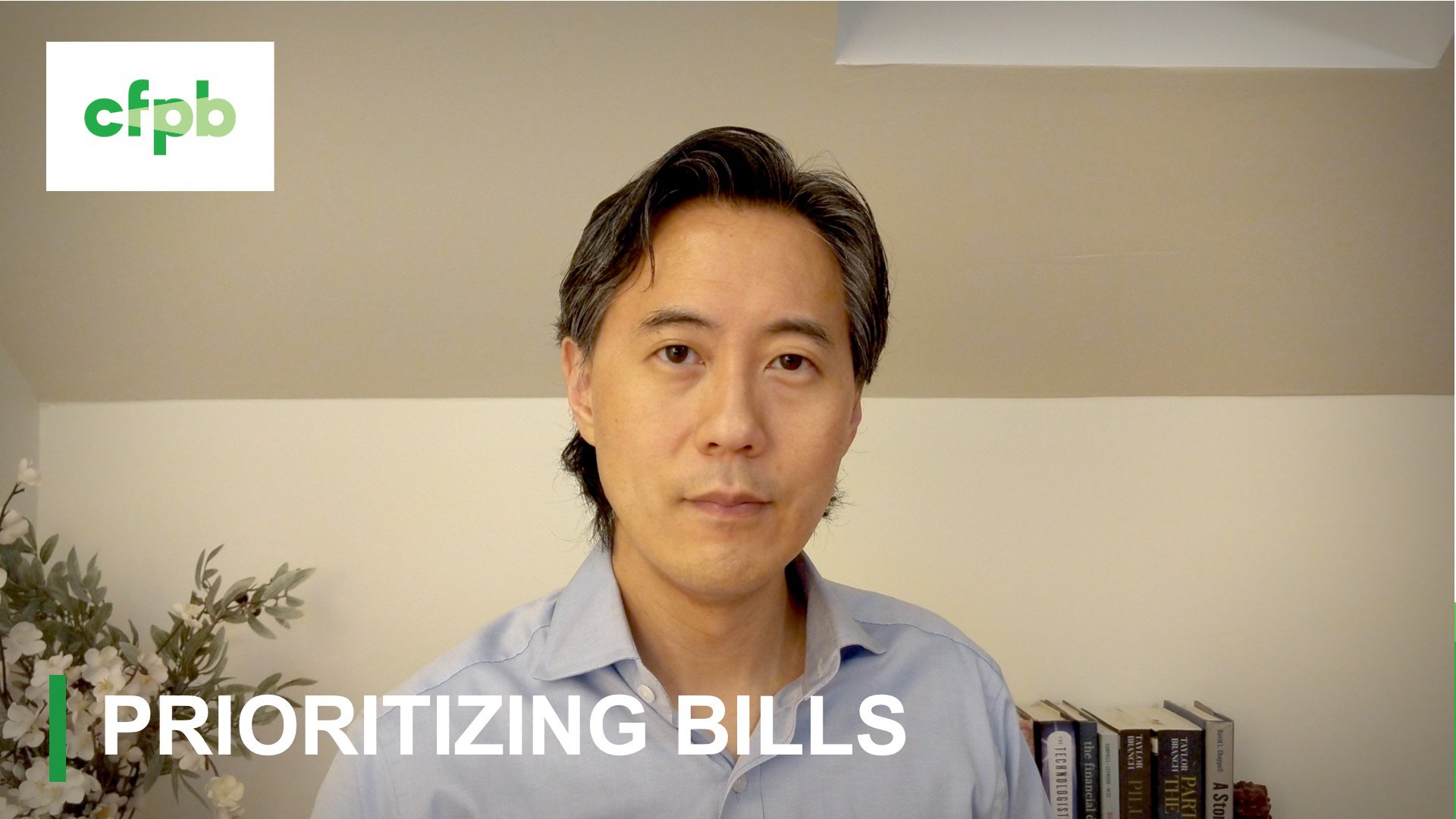Tools to help when you can’t pay your bills
- English
- Español
- 中文
- Tiếng Việt
- 한국어
- Tagalog
The pandemic has created uncertainty and anxiety in our country and around the world. This can be especially true for those who are unemployed or furloughed due to the coronavirus pandemic.
The Your Money, Your Goals financial empowerment toolkit has resources to help you evaluate your current finances and make decisions about your budget.
In this blog we highlight a few tools and handouts to help you make these tough decisions.
Paying your bills
If you are having trouble making payments, contact the companies you owe money to. Discuss your situation and options. Many companies have implemented special payment flexibilities for consumers experiencing hardship at this time.
Here are a couple tools to help you manage your bills.
Prioritizing bills
When you can't pay all your bills on time, this tool can help you prioritize which bills to pay first and helps you think through the impact of your choices.
Note: For expenses like utilities, phone and internet, mortgages, or insurance, many providers offer flexibilities to customers facing financial strain, and many are offering additional assistance during the pandemic. Check with your service providers, including utilities, phone and internet providers, mortgage servicers, landlords, and insurance companies. You can dial 211 and 311 to identify resources in your community.
Bill calendar
This tool can help you keep track of when your bills are due and avoid late fees. For some bills, like credit cards, you may be able to adjust the bill’s due date by contacting your credit card company. For others, like rent, you may be able to split a large monthly payment into two smaller payments.
Managing your spending
Reducing your spending and expenses may be an effective way to cover daily necessities. Having a clear picture of your spending helps you identify where you can reduce or better manage your money.
Spending tracker
Get an accurate picture of your finances. In normal circumstances, this includes getting a good sense of where your money is coming from (income) and where it’s going (expenses).While some of your expenses, like childcare or entertainment, may have stopped for the time being, you still need to make sure you can cover your basic necessities – food, housing, utilities, and phone.
Cutting expenses
This tool may spark ideas about how to cut costs and reduce expenses, so you can cover daily necessities. Some tips are commonly known, while others may be unfamiliar to people suddenly needing assistance.
Download the Cutting expenses tool
Dealing with debt
It is important to understand that debt can represent a very real barrier to achieving goals and can be hard to face. But there are tools you can use to help you take control of your debt. Even small steps toward paying down debt can make a big difference in making it feel more manageable.
Debt log
This tool can help you to keep track of the debt you owe. After you get a clear picture of your debts, you may want to use the debt action plan to decide which debts to focus on first.
When debt collectors call
If a debt collector calls you, use this tool to make sure you’re asking the right questions. This tool will help you verify if the claim is valid, know how to dispute the claim if you do not owe the debt, and know what to do next if you do owe the debt.
Get prepared and read about your rights. This will help you avoid scammers who may pose as debt collectors to get you to pay on debts that you don’t owe.
Download the When debt collectors call tool
Get more resources to dealing with debt during the coronavirus pandemic
Watch out for scammers
While you’re working hard to make ends meet, scammers are working overtime to try to steal your money, your identity, or both.
You are the first line of defense when it comes to protecting your financial information from fraud or theft. The Spotting red flags and Protecting your identity handouts can help you be proactive about keeping your information safe.
Download the Spotting red flags handout
Download the Protecting your identity handout
Checking your credit
It’s important to make time after you’ve figured out how you will be able to pay your bills and worked out repayment options to check your credit reports. Your credit reports and scores play an important role in your future financial opportunities.
Requesting your free credit reports
This tool walks you through the steps of requesting your free credit reports. Once you have them, use the Reviewing your credit reports tool to make sure your credit information is correct.
Download the Requesting your free credit reports tool
Download the Reviewing your credit reports tool
Disputing errors
This tool can help you find incorrect information in your credit report. Errors can appear due to a mistake in the information provided about you or as the result of fraud or identity theft.
Download the Disputing errors handout
Read more about how to protect your credit from the impacts of the coronavirus pandemic
Stay informed
Sign up for the latest financial tips and information right to your inbox.

